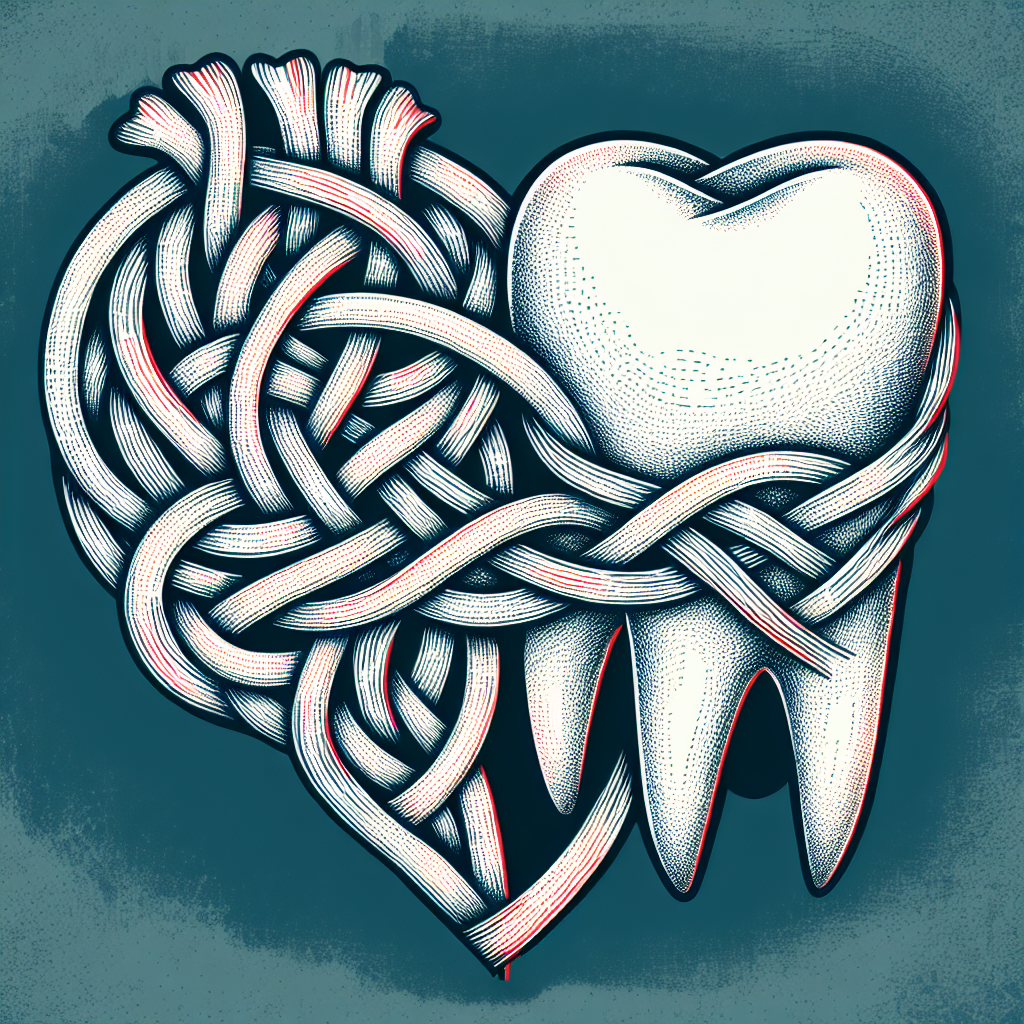The heart is often called the engine of the human body, and like any engine, it requires regular maintenance to function optimally. While diet, exercise, and genetics are commonly known factors affecting cardiovascular health, many may overlook the critical role that oral health plays in maintaining a healthy heart. Emerging research continues to highlight the importance of regular dental check-ups as a significant, yet often neglected, aspect of cardiovascular care.
The Mouth-Heart Connection
The mouth can be a gateway for bacteria to enter the bloodstream, particularly when gum disease is present. Gum disease, or periodontal disease, is an infection of the tissues that hold your teeth in place. It’s typically caused by poor brushing and flossing habits that allow plaque—a sticky film of bacteria—to build up on the teeth and harden. Advanced gum disease, periodontitis, can lead to sore, bleeding gums, painful chewing problems, and even tooth loss.
The bacteria responsible for periodontal disease can travel through the bloodstream and lodge in various parts of the circulatory system, potentially leading to cardiovascular diseases. For instance, the American Heart Association has acknowledged the association between periodontal disease and heart disease. Bacteria from the mouth can cause inflammation throughout the body, which is a risk factor for heart disease.
Preventive Dental Care and Cardiovascular Health
Preventive dental care involves maintaining good oral hygiene and scheduling regular dental check-ups to identify and treat problems early on. By doing so, not only can one maintain a healthy mouth and smile, but also significantly reduce the risk of secondary health issues, including those related to the heart.
For a deeper understanding of how preventive care can contribute to overall health, visit Cardiovascular Health on the Avix Health website.
The Impact of Dental Procedures on Heart Health
Certain dental procedures, especially those that involve surgical intervention, can have a direct impact on heart health. For example, it is common for individuals with certain heart conditions to take antibiotics before undergoing dental procedures to prevent a condition called infective endocarditis. This condition results from bacteria entering the bloodstream during dental procedures and reaching the heart valves or lining.
Individuals with heart conditions need to be particularly vigilant about their dental care and ensure their dentist is aware of their health history. This collaboration between dental and healthcare professionals can help tailor dental treatments to minimize the risk to cardiovascular health.
Integrating Dental Health into Cardiovascular Care Plans
It is crucial for healthcare providers to consider oral health when developing a comprehensive cardiovascular care plan for their patients. This includes evaluating the patient’s risk factors for gum disease and recommending appropriate dental care routines. Moreover, patients already diagnosed with cardiovascular diseases should be made aware of the potential implications of poor oral health on their condition.
For a comprehensive approach to heart health that includes factors such as diet, lifestyle, and now dental care, consider reading about The Effectiveness of Alternative Therapies in Cardiovascular Care.
The Role of Diet in Oral and Cardiovascular Health
Diet plays a pivotal role in both oral and cardiovascular health. Foods high in sugar and starch can contribute to the formation of plaque on the teeth, which can lead to gum disease. Conversely, a diet rich in omega-3 fatty acids, found in fish and flaxseed, has been shown to reduce inflammation in the body, including the gums, which may lower the risk of heart disease.
For more on how diet can influence heart health, explore the benefits of specific eating patterns through Understanding the Cardiovascular Benefits of Mediterranean Diet.
External Resources for Further Information
To underscore the significance of the connection between oral health and heart disease, here are some external resources that provide valuable insights:
- The American Dental Association offers guidelines on oral health and overall health, including the impact of dental care on systemic conditions such as cardiovascular disease.
- A scholarly article from the Journal of Periodontology presents evidence linking periodontal disease and cardiovascular disease.
- The Mayo Clinic provides an overview of heart disease prevention strategies, which encompass various lifestyle choices, including oral health considerations.
- Research published in Circulation analyzes the oral microbiome’s influence on cardiovascular diseases, offering a scientific perspective on the mouth-heart connection.
- A comprehensive review in the British Medical Journal discusses the potential of periodontal therapy to improve endothelial function, which is a marker of cardiovascular health.
Conclusion
In conclusion, the link between oral health and cardiovascular disease is a subject of ongoing research, but the evidence to date suggests a significant connection. Regular dental check-ups are not only crucial for maintaining oral health but they may also play an essential role in preventing heart disease. By understanding and integrating dental health into overall health strategies, individuals can take a proactive step in safeguarding their cardiovascular health.
As we continue to appreciate the interconnectedness of different aspects of our health, it is essential to adopt a holistic approach that includes proper dental care as a fundamental part of our wellness routine.



